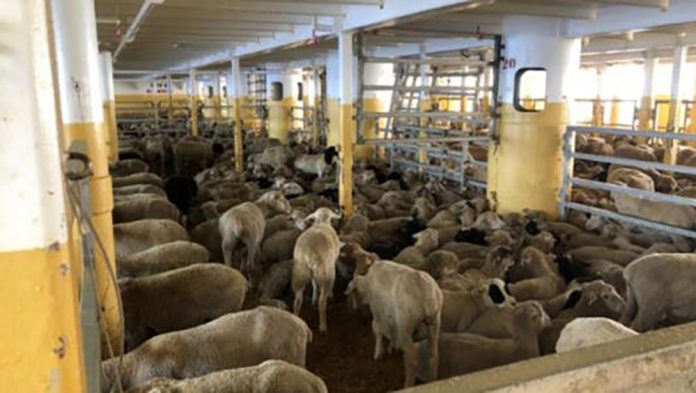There are renewed calls to ban the live export of animals by sea after a ship with thousands of sheep and cattle onboard was forced to turn around and go back to Australia, due to the ongoing attacks in the Red Sea, and this after already having spent two weeks at sea.
The recent incident involved the MV Bahijah, an Australian live export ship stranded amid deteriorating security in the Middle East.
The Israeli owned vessel, the MV Bahijah, left Australia for the Middle East, on 5 January 2024, only to be diverted from its route through the Red Sea due to escalating attacks on cargo ships in the region.
The NSPCA received news on Friday, 19 January 2024 that the ship had changed course, heading towards East London in the Eastern Cape.
But instead of docking in South Africa, the Australian government ordered that the ship’s live export return to Australia after being at sea for 15 days.
The NSPCA’s Veterinary Consultant Dr Bryce Marock sounded the alarm with the South African government and says they were ready to meet the ship at the East London harbour, to inspect and ensure the welfare of the animals onboard, before the decision was made to rather take on the arduous journey back to Australia.
Marock says the NSPCA stands firm in its unwavering call for the banning of the live export of animals by sea, which poses severe implications on animal welfare.
This incident underscores the inherent and avoidable risks associated with the live export of animals by sea. It is deeply concerning that despite possessing full knowledge of the escalating security situation in the Red Sea, exporters proceeded with the voyage, putting the well-being of thousands of animals at stake.
He says such incidents emphasise the urgent need for a paradigm shift, where the welfare of animals takes precedence over financial considerations.
The ongoing pursuit of live export, despite clear awareness of potential dangers, reflects a disregard for the ethical treatment of animals and reinforces the imperative for decisive legislative action to address this inherently risky practice.
Marock argues the transport of animals in carcass form will be the more humane alternative.
Dr Sue Foster, a spokesperson for professional veterinary association Vets Against Live Export (VALE) also told the publication MarineLink that this was a predictable and preventable risk that was nothing short of foolhardy.
She questioned whether any contingency plans were in place, especially when it comes to feeding the animals and cleaning out the sheep feces on the trip there and back.
Animals Australia also questioned how the Australian government regulator could approve the shipment, amid the ongoing conflict.


